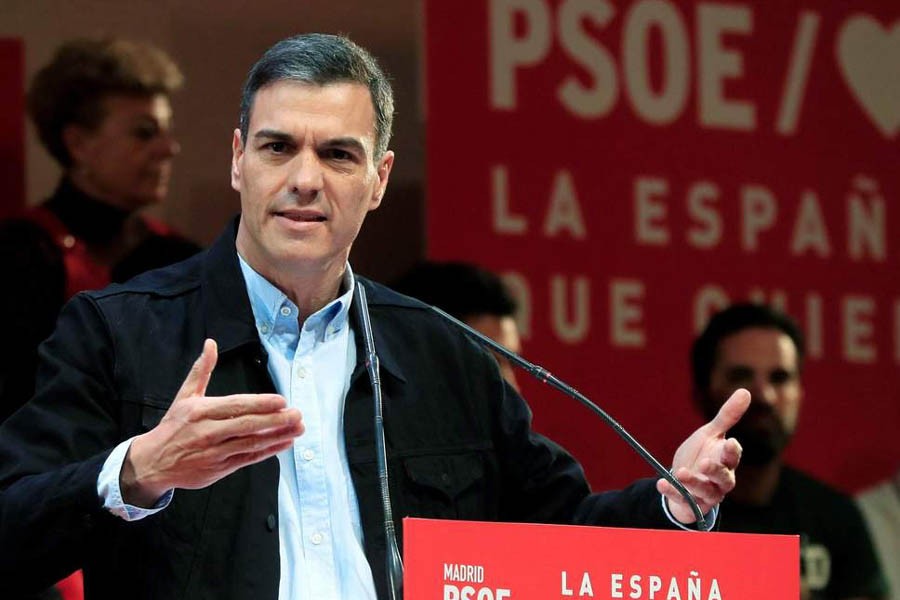Spain holds its third general election in four years on 28 April, in a battle between the established parties, Catalan and Basque nationalists, and a rising far-right.
This time, however, the electoral game has changed, reports BBC.
Support for the previous winner, the conservative People's Party (PP), has collapsed amid a corruption scandal. Its main opponent, the Socialist party, has rocketed to the top of the polls after seizing the prime minister's job last year.
Podemos on the left and Ciudadanos (Citizens) on the right are seeing their support fall, amid a boom for the controversial far-right Vox party.
One recent poll showed almost half of voters - 40 per cent - had yet to make up their minds.
Opinion polls may not tell the full story, particularly with so many undecided voters. But the potential outcomes for a government include:
But there is a problem with each of these combinations.
The Socialist and Podemos alliance of Prime Minister Pedro Sánchez's existing government needed the Basque and Catalan nationalists to support it.
But the Catalan pro-independence parties were partly responsible for the government's collapse after they pulled their support in February; and the crisis over the failed Catalan independence bid has made the nationalists hugely unpopular in much of Spain - making negotiations with them tricky.
The PP (led by Pablo Casado) and Ciudadanos (Albert Rivera) will probably need the support of Vox - but this is seen as unlikely.
Voters for Ciudadanos are largely opposed to entering government with Vox.
And Ciudadanos has also publicly said it will not form a coalition with the Socialists.
The Catalan crisis and the rise of Vox have changed the debate in Spanish politics.
"This is not an election about the economy - a different situation from what we have seen in more than 20 years," says Juan Rodríguez Teruel, professor of political science at the University of Valencia.
Despite widespread concerns about unemployment - which remains high in Spain compared to its European neighbours - it has barely been discussed by politicians.
"The campaign is going to remain around identity issues, and particularly around the Catalan issue... it seems that the economy is not, any more, the completely fundamental issue," Prof Teruel says.
Before the election, Mr Sánchez had been negotiating with Catalan parties to support his budget. But those talks broke down amid a public backlash over him meeting them, partly stoked by Vox's fervent opposition to any concessions on independence.
Despite the problems, Mr Sánchez's time as leader has seen support for his party surge - at the expense of coalition partner Podemos.
Meanwhile, a corruption scandal involving the PP last year toppled its leader and saw support plummet - leaving plenty of votes to fight for among a fragmented right.
The nationalist party has set itself up in firm opposition to the separatists, despite Spain's dark history with the far right under dictator Francisco Franco.
"The rise of Vox is clearly an earthquake in Spanish politics," says Bonnie N Field, professor of political science at Bentley University - while warning against "exaggerating" the party's success.
Opinion polls suggest it has around 10% support, while its leader Santiago Abascal has the lowest opinion rating of any party leader.
Nonetheless, she says "Spain has gone from what political scientists Sonia Alonso and Cristóbal Rovira called 'no country for the populist radical right' to one where the far right could support - or less likely, join - a right-wing government".


